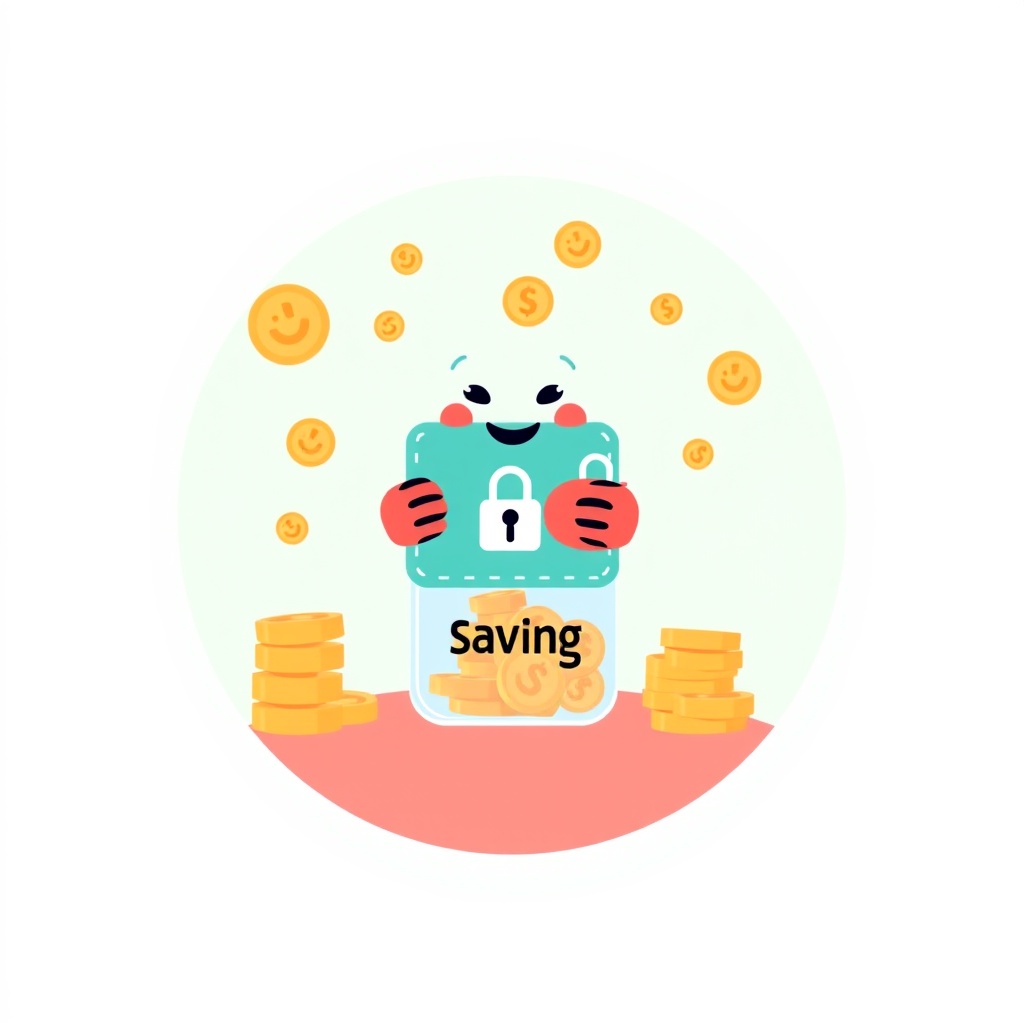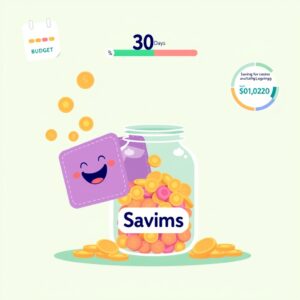Estimated reading time: 10 minutes
Key Takeaways
- Importance of data privacy in personal finance management.
- Key features that enhance the security of budgeting apps.
- Differences between standard and privacy-focused budgeting apps.
- Benefits of offline data storage and control.
- Tips for selecting the right secure budgeting app.
Table of Contents
- Understanding Privacy Budgeting Apps
- Key Features of a Secure Budget App
- Personal Finance App Data Privacy
- Budgeting Apps That Keep Data Offline
- Finance Apps Without Data Sharing
- Comparing Top Privacy Budgeting Apps
- Tips for Choosing the Right Secure Budget App
- Conclusion
- Additional Resources
Understanding Privacy Budgeting Apps
Definition of a Privacy Budgeting App
A privacy budgeting app prioritizes data privacy, using encryption and local storage to protect user information. Unlike standard budgeting tools that may upload data to cloud servers, these apps limit third-party sharing (source). They empower users with robust control over their financial data, ensuring that sensitive information stays private. Learn more about managing finances without bank connections here.
Differences Between Standard and Privacy-Focused Apps
Standard budgeting apps often rely on cloud servers, which can lead to potential data sharing with third parties for analytics or marketing purposes (source). Privacy budgeting apps set themselves apart by storing data offline on the user’s device or offering explicit options to control what data synchronizes online (source). This distinction provides users with enhanced security and peace of mind.
Key Features of a Secure Budget App
Data Encryption and Protection
Secure budget apps utilize end-to-end encryption to protect financial data both during transit and at rest. This encryption ensures that sensitive data remains confidential, prohibiting unauthorized access even during device synchronization (source, source).
User Authentication and Access Controls
Effective user authentication is essential for preventing unauthorized access to financial data. Secure budget apps include tools like passcodes, biometric authentication (fingerprint or face ID), and Two-Factor Authentication (2FA) (source). These features provide a strong barrier against unauthorized entry.
Regular Security Updates and Compliance
Regular security updates are crucial for fixing vulnerabilities and ensuring compliance with laws such as GDPR and CCPA. Developers of security-focused apps frequently release updates that address new threats and align the apps with evolving legal standards (source).
Personal Finance App Data Privacy
Why Data Privacy Matters
Budgeting apps often require access to sensitive banking details, including transaction history and account balances. A breach could expose personal spending habits, financial data, and identities to malign actors (source). Managing expenses offline can further enhance privacy (source).
Potential Risks of Data Breaches
Data breaches pose serious risks, including identity theft, fraud, and unwanted targeted advertisements. Standard apps may exploit user data by sharing it with marketers or analytics companies, exacerbating privacy concerns.
Mitigation Through Privacy-Focused Solutions
By relying on local storage, encryption, and limited synchronization, privacy-focused apps minimize exposure to breaches and unauthorized data sharing. These apps offer better protection against compromising user data in large-scale breaches (source).
Budgeting Apps That Keep Data Offline
Benefits of Offline Storage
Offline data storage offers multiple privacy advantages, as data is seldom exposed to online threats. Such storage reduces dependence on company servers and minimizes the risk of hacking incidents (source). For more insights on offline budgeting, visit this guide.
Example: Actual Budget’s Offline Capabilities
Actual Budget is an exemplary budgeting app storing data locally without mandatory cloud synchronization. Only when a user chooses to sync will data be shared, further safeguarded by end-to-end encryption (source).
Online vs. Offline Data Storage
| Aspect | Online Apps | Offline Apps |
|---|---|---|
| Data Storage | Cloud-based or company servers | User’s device |
| Privacy Risk | Higher risk due to exposure to breaches | Lower risk with limited exposure |
| Accessibility | Available from multiple locations | Device-restricted with conditional sync |
Finance Apps Without Data Sharing
Overview
Certain finance apps pledge to not sell or share user data with external parties, maintaining transparency and commitment to user privacy (source, source). Additionally, integrating a daily expense tracker can enhance your budgeting strategy (source).
Building Trust and Transparency
Building trust with users involves having clear privacy policies and empowering users to control data export and deletion. Transparency fosters confidence in maintaining the confidentiality of user data.
Example: Actual Budget’s Data Ownership Policy
Actual Budget leads by example with a policy emphasizing “you own your data,” offering assurance against third-party sharing and supporting comprehensive data control and local storage (source).
Comparing Top Privacy Budgeting Apps
Side-by-Side Comparison
| App | Local Storage | End-to-End Encryption | Data Sharing Policy | Usability | Pros | Cons |
|---|---|---|---|---|---|---|
| Actual Budget | Yes | Strong | No third-party sharing | User-friendly | High privacy, offline capability | Limited integrations |
| Standard Apps | Limited | Variable | Often shared by default | Generally familiar | Feature-rich, automated | Reduced privacy |
Pros & Cons of Privacy-Focused and Standard Apps
- Local-first Privacy Budgeting App: High data control and privacy features, but may lag in external integrations.
- Cloud-based Apps: Offer seamless automation and broader features, at the cost of higher privacy risks.
Tips for Choosing the Right Secure Budget App
Selection Criteria
When choosing a secure budget app, consider:
- Preference for apps offering local data storage or optional offline functionality.
- Strong authentication methods like biometrics and 2FA.
- A transparent privacy policy, explicitly stating no unnecessary cloud syncing or data selling.
- Additional features like data export, deletion, and regular security updates (source, source, source).
- Incorporating a daily expense tracker can also enhance your budgeting effectiveness (source).
Importance of Reading Privacy Policies
Reading privacy policies is important to understand how your data is used, stored, and how to remove it if you decide to stop using the app.
Additional Security Features
End-to-end encryption, user-initiated sync, and no reliance on cloud backups contribute to safer personal finance management (source).
Conclusion
A privacy budgeting app is an invaluable tool for those prioritizing both effective financial management and data privacy. By understanding security features, selecting the right app, and reviewing privacy policies, you can manage your finances securely without sacrificing data control. It’s time to evaluate your current budgeting tools and consider transitioning to a privacy-focused app for improved security and usability.
Additional Resources
- Explore guides on understanding financial data privacy.
- Consider recommendations for encrypted storage tools or secure password managers for enhanced data safety.
- Further reading on personal finance app data privacy and encryption basics is encouraged.
FAQ
-
What is a privacy budgeting app?
A privacy budgeting app is a tool designed to help manage personal finances while prioritizing data privacy. It uses features like encryption and local storage to protect user information from unauthorized access and third-party sharing. -
How do privacy budgeting apps differ from standard budgeting apps?
Privacy budgeting apps focus on protecting user data by storing it locally and limiting third-party access, whereas standard budgeting apps often rely on cloud servers and may share data with third parties for analytics or marketing purposes. -
What are the key features to look for in a secure budgeting app?
Key features include end-to-end encryption, strong user authentication methods (like biometrics and 2FA), regular security updates, compliance with data protection laws, and options for local data storage. -
Why is offline data storage beneficial for budgeting apps?
Offline data storage reduces the risk of data breaches by keeping sensitive information on the user’s device rather than on cloud servers, minimizing exposure to online threats and hacking incidents. -
How can I ensure my budgeting app protects my financial data?
Choose an app that offers strong encryption, local data storage options, robust authentication methods, a clear privacy policy, and regular security updates. Additionally, review user reviews and the app’s compliance with data protection regulations.




